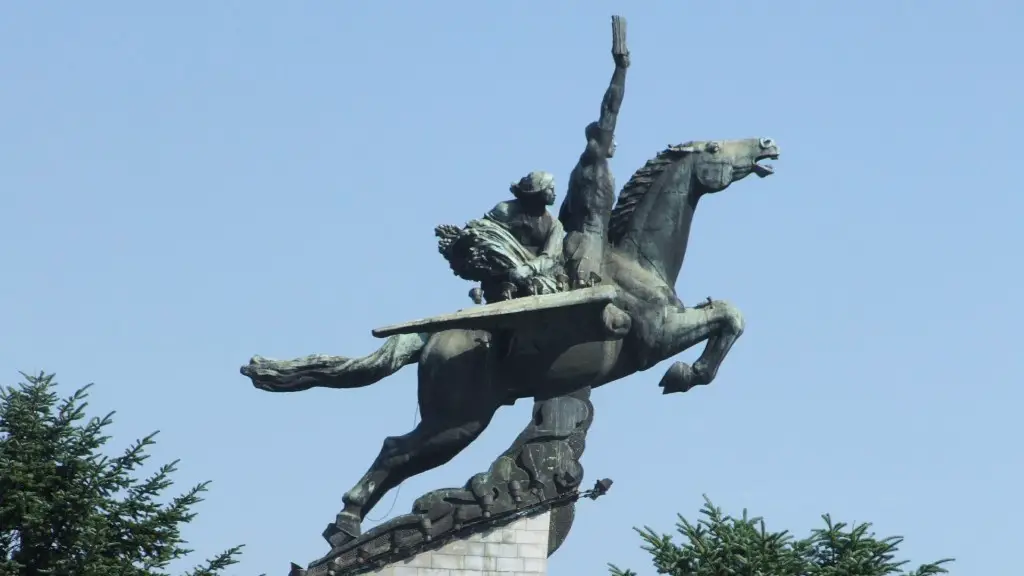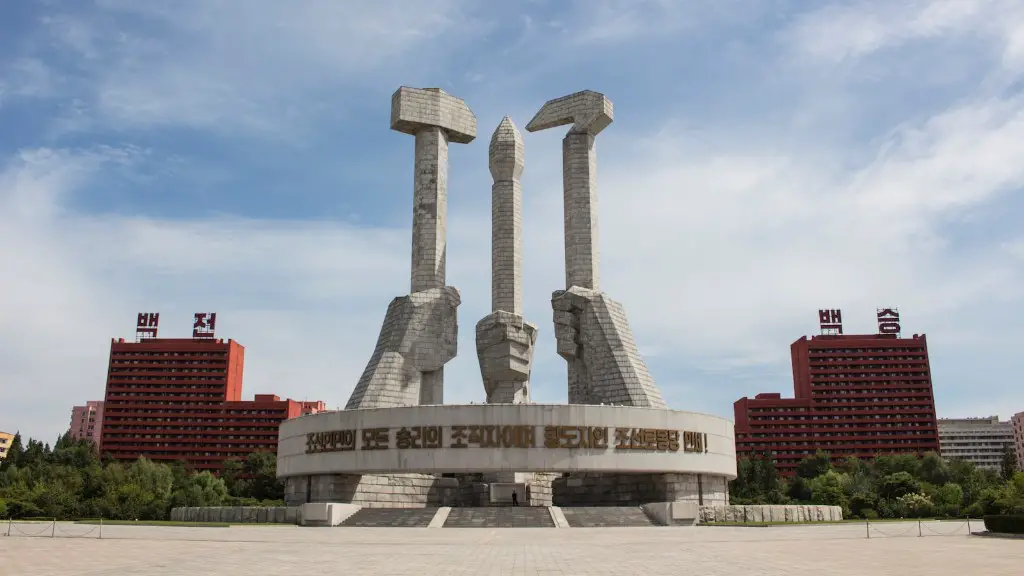Background of North Korea
North Korea is an East Asian nation isolated from the rest of the world, ruled by the Kim dynasty since its establishment in the late 1940s. For decades, North Korea has been governed by a totalitarian ideology that has kept the nation isolated and threatened by international economic sanctions. The country has one of the world’s most advanced nuclear weapons programs and has conducted several nuclear tests in the past with the stated intention of defending itself from external threats. North Korea has also made strides in other industries such as its tireless state-directed labor force, which has pulled the nation out of poverty in a way that post-War Japan could only hope to duplicate. Despite these achievements, North Korea is still considered one of the most oppressive and closed countries in the world due its lack of access to global media, civil liberties, and the rule of law.
North Korea’s Nuclear Program
North Korea’s nuclear weapons program has been a major source of tension in the region and beyond. The country has conducted several nuclear tests in the past with the stated intention of defending itself from external threats. The country has also continued to build up its nuclear arsenal, with various estimates showing it now has more than 50 warheads and has made significant progress in developing a reliable delivery system. International sanctions have been imposed due to North Korea’s refusal to abandon its nuclear weapons program. Despite these sanctions, North Korea has made significant progress in modernizing its military infrastructure and chemical and biological weapons programs, as well as its ballistic missile program.
Options for Negotiating with North Korea
The United Nations Security Council, the United States and its regional allies, have all expressed a desire to negotiate with North Korea and find a peaceful solution to the current impasse. One of the options proposed by the United States is the prospect of a successful diplomatic agreement involving a “complete, verifiable, and irreversible” denuclearization of the Korean Peninsula. Another option involves negotiations focused on economic and development assistance as a means to reduce tensions and encourage peaceful behavior. Negotiations could also focus on providing North Korea with economic and energy incentives if it agrees to give up its nuclear program and rejoin the international community.
Potential Challenges of Negotiating with North Korea
Negotiating with North Korea is no easy task. The North Korean government has a long history of disregarding international agreements, has been accused of human rights abuses and has shown an unwillingness to provide full disclosure on their nuclear capabilities. North Korea also has a long history of viewing personal gain and enrichment as a priority, which could be a challenge during any negotiations. North Korea further has strong ties to China and Russia and could employ these ties to create further diplomatic challenges.
Considerations Before Negotiating with North Korea
Before engaging in negotiations with North Korea, it is essential to consider all possible outcomes and have a clear strategy in place. It is also important to assess whether economic incentives would be enough to get North Korea to cooperate and give up its nuclear program. Negotiations should also focus on the country’s human rights record and ensure that any agreement leads to a better situation for the North Korean people.
Impact of a Successful Negotiation with North Korea
The international community would be greatly impacted by a successful negotiation with North Korea. A successful negotiation would greatly reduce the tension and instability in the region, which could benefit global security. It would also open the door for increased economic and diplomatic ties, potentially providing North Korea with access to trade opportunities and a means to escape its current isolation.
Impact of a Failed Negotiation with North Korea
The consequences of a failed negotiation with North Korea would be catastrophic for the international community. North Korea could resume its nuclear weapons program at an accelerated rate, as well as increase its military aggression in the region. This could result in increased tensions between North Korea and its neighbors, and could potentially lead to an armed conflict.
Influence of China on Negotiations with North Korea
China is North Korea’s closest ally and it is essential to consider its influence in any negotiation process. China’s support could be key to bringing North Korea to the negotiating table, and its cooperation in tightening economic sanctions could be beneficial. However, it is also important to monitor China’s actions to ensure that it is not providing North Korea with material assistance, as this could complicate negotiations.
Impact of US Leadership on Negotiations
The United States is seen as the leader in the international community and its role in negotiations with North Korea will be essential to any potential success. The US must be willing to make concessions and provide incentives to North Korea to encourage its cooperation. However, the US must also be aware of the potential for North Korea to use the negotiations to gain leverage in the region and must be willing to walk away from negotiations if it senses any manipulation or bad faith from the North Korean side.
South Korea’s Role in Negotiating with North Korea
South Korea has a major interest in any negotiations with North Korea and its opinion must be taken seriously. South Korea has a direct stake in finding a diplomatic solution and its regional ties give it an advantage in negotiations. South Korea could be interested in negotiating a peace treaty with North Korea, as well as promote economic ties to reduce tensions in the region.
North Korea’s Role in Negotiating with the International Community
North Korea will have a major role in negotiations with the international community and its willingness to cooperate could be a major factor in any success. North Korea must be willing to make concessions and provide full disclosure on its nuclear capabilities and human rights record. It is also important for North Korea to take the process seriously and be willing to engage in meaningful dialogue with world leaders.
International Community’s Role in Negotiating with North Korea
The international community must be united and committed to finding a solution in order to have any hope of negotiating a successful agreement with North Korea. In order to accomplish this, world leaders must be willing to work together to ensure economic sanctions are enforced and provide incentives for North Korea to cooperate. It is also important for the international community to take a firm stance on human rights and press North Korea to address its violations.



